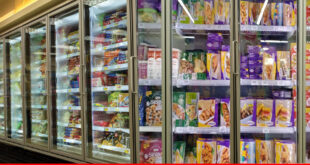While the gross domestic product of the country is showing signs of slower economic growth, the fast food industry seems to be experiencing higher amounts of growth. Industry estimates suggest it to be a $1 billion per year market suggesting that international and domestic cuisines and restaurants seem to be doing quite well.
The fast food industry in the country is constantly seeing new restaurants opening up on a yearly basis causing a boom to occur in this market segment. According to sources within the industry, almost 50 restaurants open in Karachi alone on a yearly basis in upscale neighborhoods in the city. This could only happen if there was a demand for such cuisine and people were willing to pay the prices accompanying such food as well which seems to be the case.
While restaurants overall are doing well, what is driving the recent growth is burgers, which continue to remain in the top preference among people when it comes to fast food. According to the CEO of EatOye, an online food delivery service, Mr. Nauman Mirza, local burger chains too penetrated the food industry in 2014. While since 2013 growth has been on the rise, there is still room for more growth to occur. He is also of the opinion that within Pakistan, the fast food industry is huge and one which is untapped thereby still having a number of options available for people to take advantage and help the industry grow. Giving an example of just how untapped the market is, he claims there to be almost 5,000 restaurants in Dubai where the population is around more than 2 million whereas in Karachi, where the population is almost 20 million, there are only 1,000 restaurants catering to the public due to which there exists a large gap between the demand and supply.
Some statistic s compiled by Foodpanda, which is another food delivery service and a subsidiary of Rocket Internet by Germany suggests that within the category of fast foods, burgers come in at the top. For Foodpanda, an average day consists of burgers making 21% of the daily orders in Karachi and is also the food which is the most ordered. In Lahore, burgers make up around 33% of the average daily orders placed on their website. In comparison to traditional cuisines, which consist of Karahi, Biryani and Handi, fast foods are more popular.
While the economic and political front of the country hasn’t caused consumer spending on fast food to decline, what is causing it to increase? It is most likely that consumerism on the whole is rising due to the growth of the middle class and population demographics, which can be seen as the important factors. Large numbers of people are now entering into the income bracket where they are not only independent but also have disposable income to spend on such items. This can be seen from the fact that Pakistan is considered to be amongst the top countries, which are adding people in the age bracket of 20 plus into the world.
Due to such increases in consumerism as well, franchises have also opened up their branches in the city with new ones continuously being added to the competition already present. Despite new entrants coming into the market, McDonald’s and KFC are still considered as having the largest share in the market and no now franchise has been able to meet up to either of these franchises. What’s best is that with the increase in the number of restaurants having opened up, both local and international ones, consumers are given a wide variety to select from and can base their choice on budget as well.
While the fast food industry is one which has potential for growth and which offers investment opportunities to those who may be interested, it does have its challenges as well. The General Manager for Mr. Burger stated that one of the challenges faced by the company was that of money extortionists and their demands due to which the company had to close down one of its branches.
While local consumers constantly want to get a taste of international food chains, people living abroad too wish to taste Pakistani cuisine, which is something some businessmen have banked on. Some well known culinary brands from Pakistan are being replicated in the United Kingdom without the knowledge or even the permission of the original owner of the brand. Places such as Salt n’Pepper, Bundu Khan, Nirala, Shezan, Gourmet and Ambala are some of the brands whose trademark rights have been infringed upon. Not only have these brands managed to reach the UK but a number of them have been successful as well such as Nawaab in Manchester and Mumtaz in Bradford, well known examples of restaurants thriving in the country.
While some may argue this is purely a result of globalization and that similar to culture, we see fast food chains emerging all over the world. Franchises originating from one country are opening up in another and the local cuisine of a particular country is getting popularity in other countries. Pakistan too has been impacted by this facet of globalization with the increasing numbers of fast food chains the country and in particular Karachi, Lahore and Islamabad have seen emerging. Because of this, domestic cuisine and restaurants have been found to become a second choice for most people living in upscale neighborhoods unless, however, these local restaurants have a choice of good international cuisine. The local Karhai, Biryani and Handi are mostly preferred by the masses who cannot afford such expensive restaurants. The emergence of new restaurants and fast food chains is something Pakistan is continuing to experience and as stated by those in the food industry, this market segment has a great deal of potential and a lot to offer considering the direction in which it is headed.
 PAGE Blog Business Weekly Magazine
PAGE Blog Business Weekly Magazine

